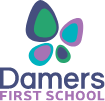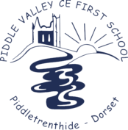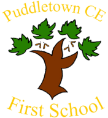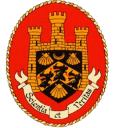
Modern Foreign Languages
Why study modern foreign languages at The Purbeck School?
"If you talk to a man in a language he understands, that goes to his head. If you talk to him in his own language, that goes to his heart."
Nelson Mandela
At the Purbeck School, the study of Modern Foreign Languages is an integral part of our curriculum as we strongly believe that learning a foreign language is crucial for the future ability of our pupils to thrive in an ever-expanding and globalised world. Learning a language has numerous benefits: exploring the modern world through understanding different cultures, identity, traditions and enhancing communication skills to name but a few. In today’s global world, being able to communicate in a foreign language will enhance future study and career prospects.
The skills required for language learning are transferable through all areas of study and work, and our intent, as a Department, is that:
-
students will enjoy exploring different cultures with respect, an open-mind and tolerance.
-
students grow in confidence whilst enhancing their communication skills.
-
problem-solving, recognising patterns and communicating will be increased.
-
our students’ employment and travel opportunities will increase.
-
we provide a broad and balanced curriculum to all students, with maximum impact.
How do we teach Modern Foreign Languages at The Purbeck School?
In year 7, students study both Spanish and French. In year 8 they continue to study one of these languages until the end of year 9 when they can opt to study it as a GCSE in years 10 and 11.
Learning a language is all about being able to perform real life communicative tasks and therefore, here at The Purbeck School, we teach languages following the EPI (Extensive Processive Instruction) method where vocabulary and grammar are taught through a range of high frequency words and phrases chunks and constructions. The EPI method prioritises the teaching of chunks derived from communicative functions over the teaching of single words and traditional grammar, thereby enabling us to offer an adaptive teaching experience accessible to all pupils of all abilities. The EPI method, developed by Dr Gianfranco Conti, is a method which breaks down a topic in a series of phases:
- MODELLING: the use of chunks in context through sentence builder/story telling/songs/etc.
- AWARENESS RAISING: sensitising the learners to the patterns/rules governing the target chunks formation and use (pop-up grammar).
- RECEPTIVE PROCESSING: high-intensity processing practice through receptive skills (controlled input).
- STRUCTURED PRODUCTION: intensive supported and highly controlled production practice (pushed output)
- EXPANSION: structure is learnt in greater depth and practised with old and new vocabulary and structures overtime through systematic recycling.
Students are taught in mixed ability sets. In years 7, 8 and 9 pupils cover all requirements of the KS3 national curriculum and at KS4, The MFL curriculum is themed-based to reflect the demands of the GCSE syllabus with key grammatical points which can be used across all topic areas. All years are taught using sentence builders.
At KS4, students continue to develop the skills they have been introduced to at KS3. To prepare for the speaking and writing exams pupils will focus on extending their ability to narrate in detail a series of events in the past, present and future with reference to others as well as themselves. They will be able to offer a wide range of opinions and justify them. To prepare for the listening and reading exams students will have access to authentic materials, in order to develop their cultural understanding. They will also learn the skills required for effective translation from and into the target language.
French Long Term Overview
Spanish Long Term Overview


















